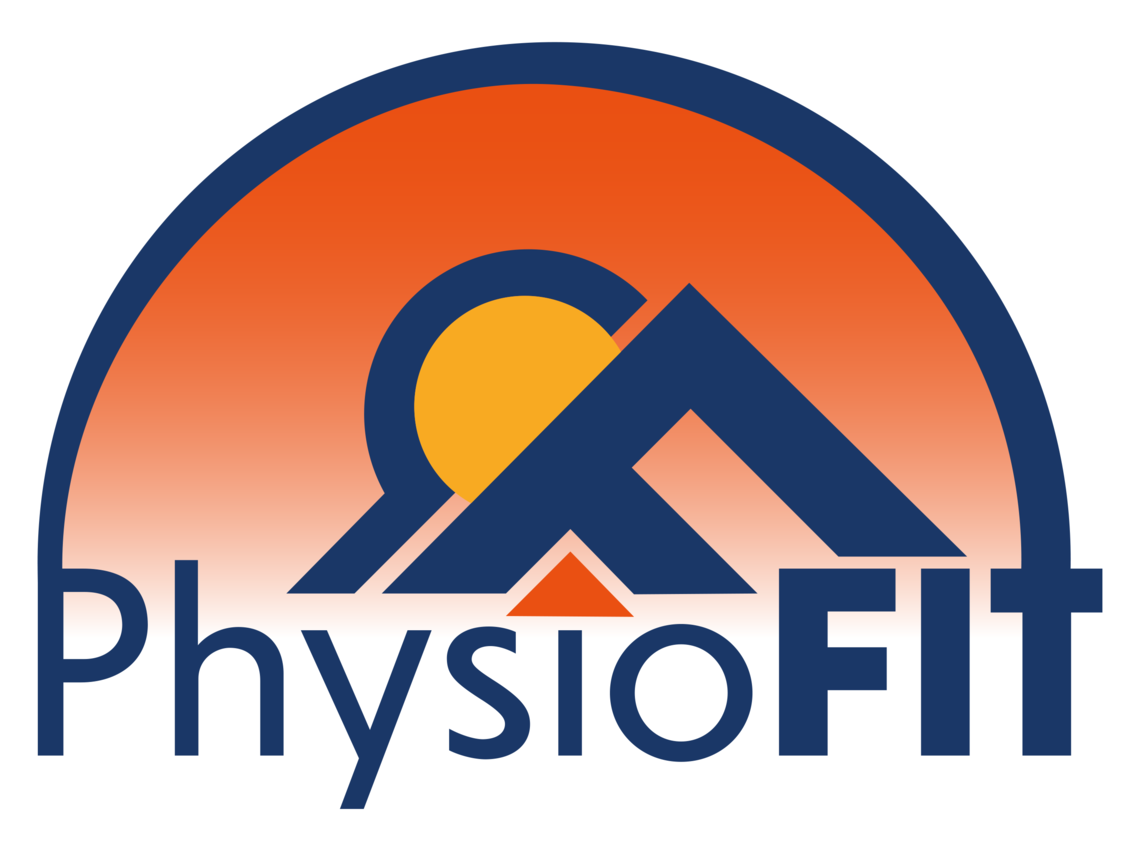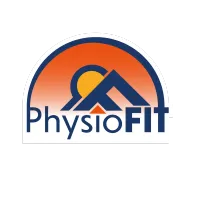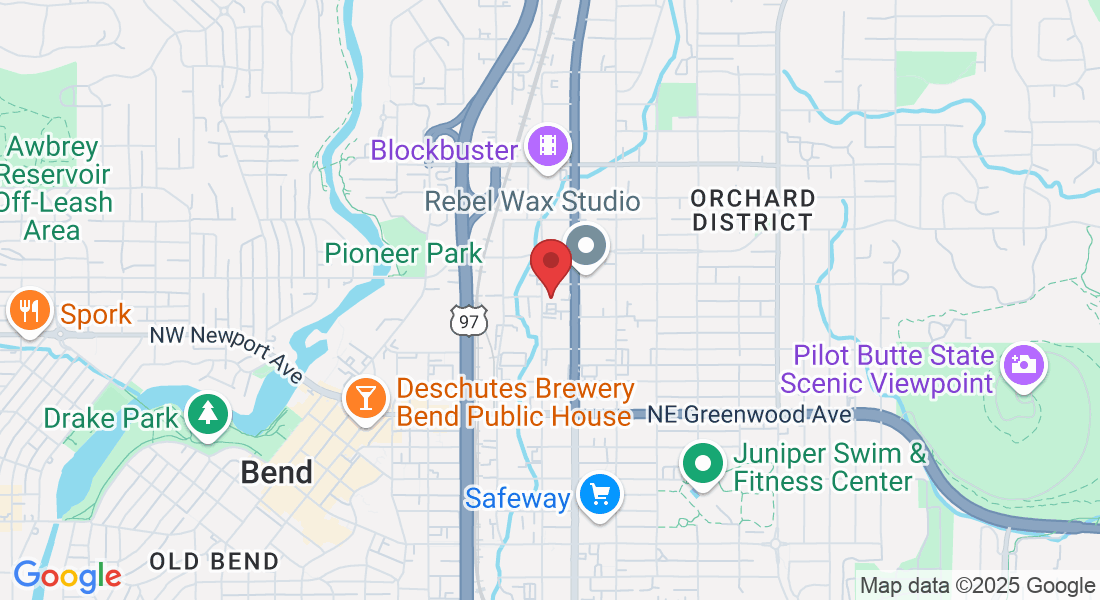Chronic Headache Relief
Free Your Mind From Chronic Headaches
Headaches are an occasional unwelcome guest for many of us, but when they become a frequent visitor, you may be dealing with chronic daily headaches. A broad term that includes various subtypes defined by their frequency and duration. These headaches can be significantly debilitating, but with assertive initial treatment and ongoing management, pain reduction and fewer headaches are achievable. If this strikes a chord with your experience, don't hesitate to schedule an appointment with us.
Discover Unprecedented Relief from Chronic Headaches at PhysioFit: We prioritize personalization in your healthcare journey, acknowledging that individuals with Chronic Headaches necessitate distinct treatment strategies. Utilizing the potency of empirically-supported, fitness-centric physical therapy in bend, we aim to do more than merely alleviate your symptoms. Our mission encompasses the enhancement of your holistic health, prevention of enduring pain, and speeding up your recuperation period, enabling a smooth transition back into your daily routines.
What You Should Know
Migraine headaches can be categorized into two types: episodic and chronic. While chronic migraines happen more than 15 days in a month, episodic ones occur less frequently.
The very medicine you're consuming for headache relief could potentially be causing headaches: Taking pain relievers beyond two days a week, even common ones such as ibuprofen, puts you at risk for what's known as a rebound headache. Similarly, abruptly discontinuing regular pain medication can provoke headaches.
The origin of your headaches may not necessarily be your head: Secondary headaches stem from an underlying health issue, like degenerative disc disease in the spine, sinus infections, or past experiences of head trauma. Although infrequent, persistent headaches and visual disturbances can also be caused by brain tumors.
A proper diagnosis of a TMJ or TMD problem involves a thorough evaluation from a professional.

What Causes Chronic Headaches?
The triggers of numerous chronic daily headaches remain somewhat elusive. Authentic (primary) chronic daily headaches don't present with a detectable root cause.
However, a series of conditions could instigate nonprimary chronic daily headaches, such as:
Vascular Issues: Any inflammation or complications with the blood vessels surrounding or within the brain, including serious events like a stroke, could trigger chronic daily headaches.
Infectious Diseases: Certain infections, notably meningitis, can also result in the manifestation of chronic daily headaches.
Intracranial Pressure Discrepancies: Abnormally high or low pressure within the skull could prompt these types of headaches.
Presence of a Brain Tumor: Brain tumors, whether malignant or benign, could be a potential cause of chronic daily headaches due to the pressure they exert on surrounding brain tissue.
Traumatic Brain Injury: Traumatic events causing injury to the brain can also be a catalyst for chronic daily headaches, as the brain recovers and copes with the trauma.
If any of this information resonates with your current situation, we urge you to schedule an appointment with us immediately. Don't let hip pain diminish your life quality - allow us to help you embark on the path to relief today.
Can Chronic Headaches Be Prevented?
The short answer is yes, chronic headaches can often be prevented, or at least their frequency and intensity can be significantly reduced. The following strategies focus on lifestyle changes and self-care measures which can help you manage and potentially prevent chronic headaches:
Identify Headache Triggers: Proactively documenting each headache in a journal can highlight patterns and triggers, thereby helping you to avoid these. Make sure to record important details like the time the headache started, what you were doing, and how long it lasted.
Cautious Medication Usage: Excessive consumption of headache medications, including over-the-counter ones, can increase the severity and frequency of headaches. It's advisable to consult your doctor for a safe plan to gradually reduce medication use, as abrupt discontinuation can lead to severe side effects.
Quality Sleep: For an average adult, 7-8 hours of sleep a night is essential. Try to maintain a consistent sleep schedule and seek medical advice if you have sleep disturbances, such as snoring.
Regular, Balanced Meals: Aim to eat healthy meals at consistent times daily. Be mindful of potential food and drink triggers like caffeine, and adjust your diet accordingly. Weight loss should be considered if obesity is a concern.
Regular Exercise: Engage in routine aerobic activities to improve your physical and mental well-being and reduce stress. Choose enjoyable activities like walking, swimming, or cycling, and remember to gradually increase the intensity to prevent injury.
Stress Management: Stress can often trigger chronic headaches. Incorporate stress-reducing techniques into your routine such as yoga, tai chi, and meditation. Moreover, staying organized, planning ahead, and maintaining a positive outlook can greatly help in managing stress.
Moderate Caffeine Intake: While caffeine is included in many headache medications due to its pain-alleviating properties, it can also exacerbate headaches. Try to reduce or completely remove caffeine from your diet.

Common Symptoms of Chronic Headaches
Chronic daily headaches, as the name implies, occur more than half the month, lasting for a period exceeding three months. Primary chronic daily headaches are those not precipitated by any underlying health condition.
These headaches can be of shorter or longer duration. Those falling in the long-lasting category persist for over four hours. The types of long-lasting chronic headaches encompass:
Persistent Migraines
Continuous Tension-Type Headache
Newly Appearing Daily Persistent Headache
Hemicrania Continua
Remember, if you resonate with any of the symptoms or conditions mentioned, we highly recommend making an appointment with us for a thorough evaluation and personalized treatment plan.
Please Note: The information provided on our website is intended for general education and is not a substitute for professional medical advice. Each individual's situation and body is different. Therefore, what may work for one person may not work for another. We care about your well-being and advise you to reach out to us to discuss your specific needs before implementing any advice from our website.
Your Source for All Things Physical Therapy in Bend Oregon
The PhysioBlog

Why Every Golfer Would Benefit From a TPI Assessment for Better Performance
Why Every Golfer Would Benefit From a TPI Assessment for Better Performance
Imagine you’re a mid-handicap golfer in Bend, Oregon. You love teeing off at Tetherow but notice your slice is back or your back twinges after 15 holes. You’ve heard about the Titleist Performance Institute (TPI) but have no idea what it is or how it could help your game. In this article, we’ll walk through everything you need to know about a TPI Golf Assessment, what it involves, why it matters for your swing, and how a local Bend physical therapy clinic like PhysioFIT Bend can use it to fine-tune your body and fuel your scores.
What Is a TPI Golf Assessment?
A TPI Golf Assessment is a 16-point physical screening developed by the Titleist Performance Institute. Instead of tweaking your grip or swing plane first, TPI looks at your body’s flexibility, strength, balance, and stability, all in relation to the golf swing. Think of it like a mechanic inspecting your car’s suspension, brakes, and steering before tuning the engine. If your hip rotation is tight or your core lacks stability, no amount of swing drills will fix the real issue.
Why Bend Golfers Should Care
In Central Oregon we’re spoiled with golf on the high desert, from Pronghorn’s immaculate greens to the tree-lined fairways of Awbrey Glen. Yet that altitude, crosswinds, and frequent trail running can leave your body misaligned for the perfect swing. A TPI Assessment pinpoints precisely where your body is holding you back, so you can hit farther, straighter, and play pain-free rounds.
The 16-Point Screen: What Gets Tested
During your TPI Golf Assessment at PhysioFIT Bend, a certified TPI professional will guide you through these key tests:
Overhead Squat Pattern
Measures ankle, hip, and thoracic spine mobility along with core stability.Seated Rotation
Assesses torso turn independent of hips—critical for coil in your backswing.Pelvic Tilt
Evaluates low-back flexion and extension control to prevent pain.Single-Leg Balance
Tests proprioception and ankle stability essential for follow-through.Bridge Movement
Gauges glute activation and hip extension power for solid drives.Straight Leg Raise
Checks hamstring and calf flexibility to support posture.Thomas Test
Looks at hip flexor tightness that can limit your swing arc.Trap-Stretch
Measures upper-body extension and shoulder function for a full finish.Core Stability
A series of plank variations to establish a stable rotation axis.Quad Strength
Single-leg squat depth and control for lower-body power transfer.Thoracic Rotation
Seated or standing twist to test upper-back mobility separate from hips.Shoulder Mobility
A-arm reach tests to uncover restrictions in lead-arm extension.Hip Rotation
Internal and external rotation range that drives hip turn and weight shift.Ankle Dorsiflexion
Measures ankle bend to ensure proper hinge at address.Glute Bridge Endurance
Holding a bridge to fatigue to see if endurance drops mid-round.Cervical Spine Function
Neck rotation and tilt to keep your head stable throughout your swing.
Each test is scored, and your TPI-certified therapist will highlight limitations and strengths in a personalized report.
What to Expect During Your Assessment
A typical TPI session at PhysioFIT Bend takes 30 minutes:
Intake & Goals: Quick survey of your swing history, injuries, and performance targets.
Screening: Guided through all 16 tests—no swinging clubs, just movement.
Results Review: Clear explanation of findings with local analogies (“Your hip rotates like a rusty gate, let’s oil those hinges.”).
Action Plan: Customized exercise program with step-by-step drills to address your specific needs.
Access to the TPI client app where you can find your exercise plan (with videos) and track your progress!
How a TPI Assessment Improves Your Game
By fixing physical limitations first, you’ll notice:
Increased Clubhead Speed: Better hip and core function means more power behind every swing.
Greater Consistency: Improved balance and coordination reduce mishits and errant shots.
Reduced Pain & Injury Risk: Correcting imbalances protects your back, shoulders, and knees.
Boosted Confidence: Knowing your body is optimized lets you focus on strategy and course management.
Sample Golf-Specific Exercises
Here are drills you might receive after your assessment:
Hip-Opening Lunge with Rotation: Frees tight hip flexors.
Medicine Ball Rotational Throws: Trains power transfer through torso.
Single-Leg Romanian Deadlift: Builds glutes, hamstrings, and balance.
Wall Angels: Enhances upper-back mobility for a full finish.
Banded Ankle Mobilizations: Improves your address hinge mechanics.
Aim to perform these 3 to 4 times weekly, then test changes on the practice tee.
FAQ
What does a TPI Assessment involve?
You’ll complete 16 movement tests covering flexibility, strength, balance, and rotation to identify limitations affecting your swing.Do I need to bring golf clubs?
No. The focus is on body movement. Wear comfortable athletic clothing and shoes.How soon before a tournament should I schedule?
Schedule at least 6 to 8 weeks ahead to implement corrective drills and integrate swing changes.Is it painful?
Tests are gentle; any discomfort comes from existing tight or inflamed areas, and your therapist adjusts accordingly.Who benefits?
All ages and levels, junior golfers, weekend warriors, and seniors alike reap the benefits of optimized movement.How often do you re-screen?
Annual re-screening is ideal, or sooner if you notice new aches, swing changes, or after off-season training.Is it covered by insurance?
Coverage varies. Contact your provider, and we can supply required billing codes.Can I do exercises solo?
Yes, but we recommend at least two follow-up sessions to ensure proper form and progression.What about existing injuries?
TPI can flag and adapt tests for injuries in rehab, keeping you safe and on track.How do I book my screen?
Call 541-797-5800 or visit www.PhysioFITBend.com and click “Make an Appointment” with our TPI Certified Pro, Michael Hernandez.
Ready to take your game to the next level? Book your TPI Assessment at PhysioFIT Bend and unlock your full potential on Central Oregon’s premier courses. Your best round yet is just one screen away.
Copyright PhysioFIT 2025 . All rights reserved


